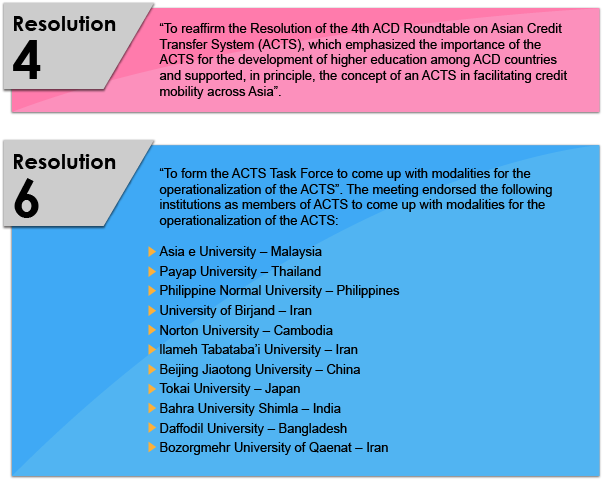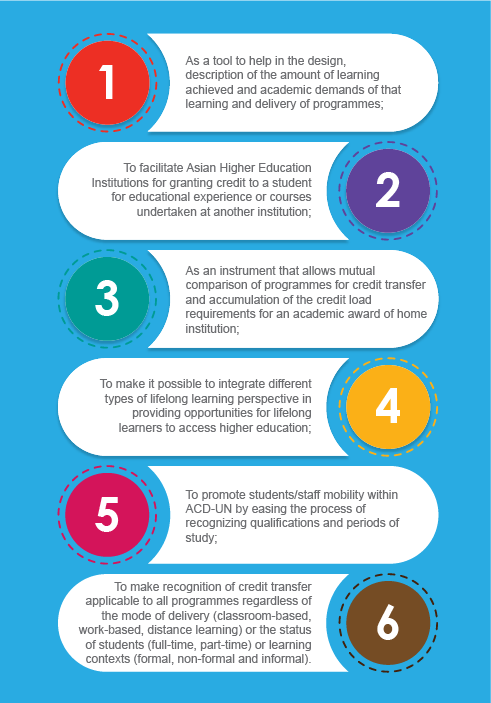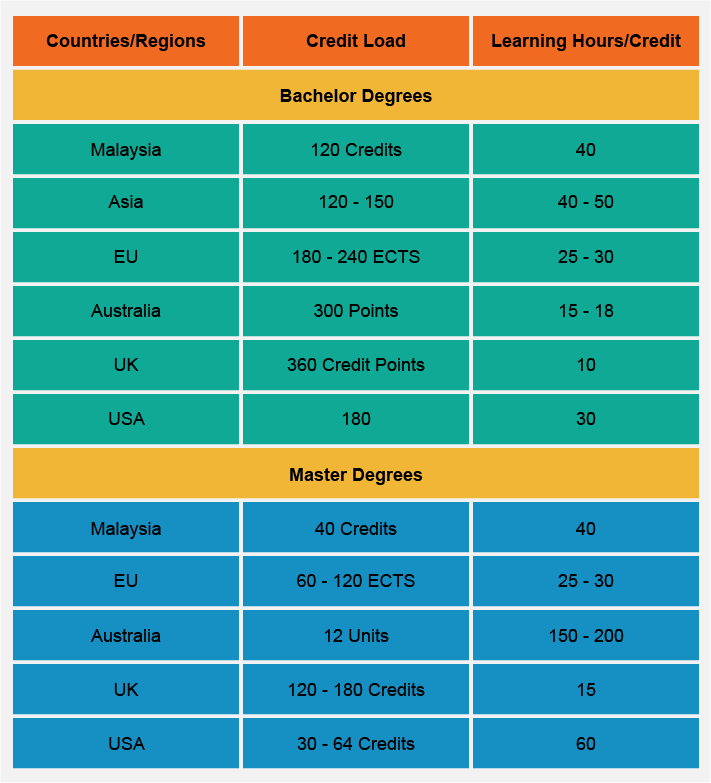Asian Credit Transfer System (ACTS)
The Asia Cooperation Dialogue (ACD) High-Level Meeting on Asia Academic Collaboration held at Siam University, Bangkok and co-hosted by Asia e-University and Siam University from 24th to 25th February 2016, whilst expressing appreciation to the ACD Secretary General, Siam University and Asia e University for co-hosting the ACD High-Level Meeting on Asia Academic Collaboration, has agreed to propose to the 14 th ACD Ministerial Meeting SIX (6) Resolutions, two of which are related ACTS as follows”

The following are guiding notes for ACTS as proposed and presented by AeU
A credit system in higher education is widely accepted as a way of describing an educational programme by attaching credits to its components. The credit value’s role is to indicate the average amount of learning time required for a learner to achieve a credit value. Learning time is made up of face to face guided learning as well as self-directed independent learning including self-learning online, doing homework and research and work placement.
With the advent of globalization, impact of ICT on education and increasing transnational student mobility, it is timely for institutions of higher learning in ACD member countries to come together in establishing an ACD University Network ACD-UN, to promote educational and research cooperation in using various academic and research platforms as well as ACTS as a common denominators to face challenges and opportunities in the field of higher education. In this regard the development of ACTS guidelines and its acceptance as the over-arching instrument for education cooperation is the key to success. Such a system will provide the necessary instrument for understanding and comparing different education systems, mutual recognition of academic and professional qualifications, increase collaboration between universities and encourage understanding and development of what is truly Asia.
It is therefore important for ACD-UN to initiate the establishment of an ACD-UN task force with representation from ACD members to draft the ACTS guidelines to facilitate the implementation of educational and research collaboration activities with the following understanding of the key objectives of ACTS:

ACTS guidelines should take advantages of and learn from the success of
(1) European Credit Transfer System (ECTS) as a standard for comparing the study attainment and performance of students of higher education across the European Union and other collaborating European countries. This is considered to be the most widely recognized and cited credit transfer system used in developing subsequent schemes in other countries/regions. In the ECTS, 60 credits represent one year of study (in terms of workload); normally 30 credits are given for six months (a semester) and 20 credits for a term (a trimester). A typical Bachelor’s degree would consist of 180 to 240 credits whereas a Master’s degree is 90 to 120 credits. The use of ECTS at doctorate level varies.
(2) ASEAN University Network (AUN) Credit Transfer System is used to facilitate student mobility among AUN member universities. It is based on students workload in terms of the learning outcomes and applicable to student exchange activities, generally for a period of one, up to a maximum of two academic semesters, or a shorter period of study (e,g during semester break). AUN credit transfer system takes into consideration of the existing institutional and national credit systems for the expression and conversion of credits, study periods and learning outcome achievements, and does not require a modification of the existing institutional or national credit systems. The benchmark of study for this purpose is 30 credits for one semester.
The following are some Qualification Credit Framework comparison:


